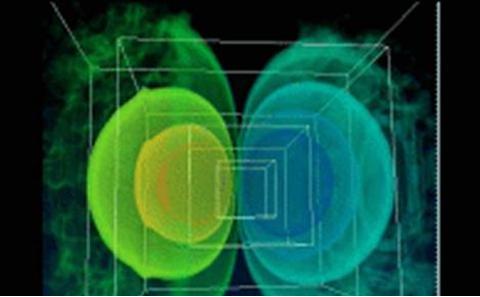Applied Seminar - Collective feeding in C. elegans, Linus Schumacher (Imperial College London) Seminar

- Time:
- 12:00 - 13:30
- Date:
- 21 November 2017
- Venue:
- Room 4001, Ketley Room, Building 54, Mathematical Sciences, University of Southampton, Highfield Campus, SO17 1BJ
For more information regarding this seminar, please email Dr Ashot Minasyan at A.Minasyan@southampton.ac.uk .
Event details
Collective behaviour is one of the signature features that make living complex systems fascinating to study. How collective behaviour emerges from basic principles has been well studied in groups of large animals and to some extent in groups of cells, but is less well understood at the mesoscopic scale. We thus investigate the collective feeding behaviour of the nematode worm C. elegans, a popular model organism for its easy genetic manipulability and stereotypic, yet complex behaviour. In this system, small genetic perturbations can lead to strikingly different population-level phenotypes.
First, we quantify behavioural differences between the “solitary” lab strain and a “social” aggregating mutant strain, using fluorescence imaging and many-worm tracking to probe the dynamics inside aggregates. To interrogate the mechanism of aggregation, we draw on concepts from motility-induced phase transitions, and use computational modelling of basic worm movement. We find that a combination of behavioural modulations is necessary for aggregation, with each on its own insufficient to produce the characteristic aggregation.
We also investigate the hypothesis that collective behaviour benefits group feeding in this system through sharing of social information. Using a minimal model of foraging, we assess the success and efficiency of solitary and social strategies in different resource distributions, representing the natural environment and laboratory conditions. This may provide an explanation for the predominance of aggregation phenotypes in wild C. elegans strains.
Speaker information
Linus Schumacher, Imperial College London. Linus is interested in the collective behaviour of molecules, cells, and organisms. His current project at the biological physics group involves quantitative analysis and modelling of collective behaviour of C. elegans, in collaboration with Serena Ding and André Brown at the Behavioural Genomics Lab.